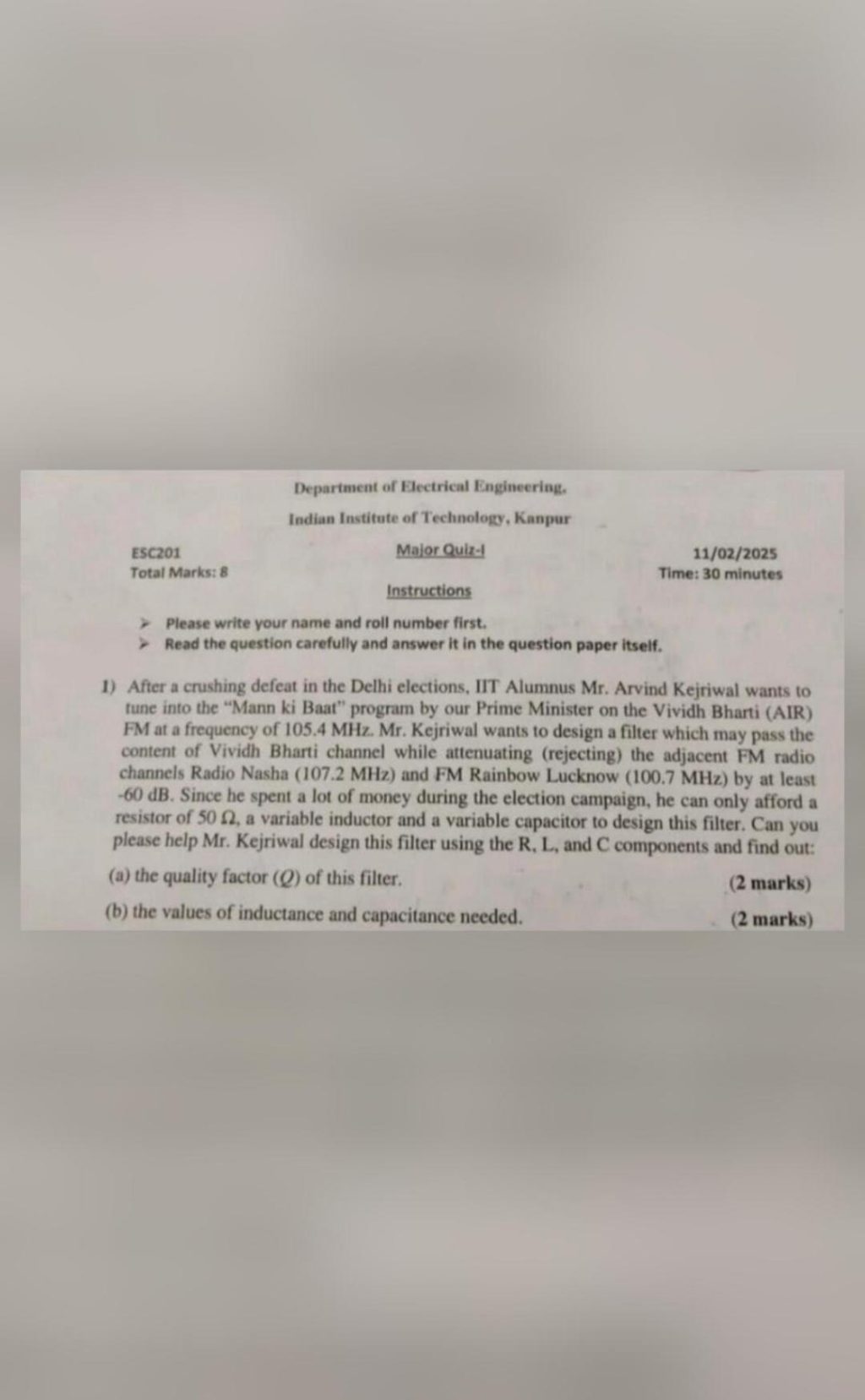
Wanted exam to be more engaging: IIT Kanpur on ‘Kejriwal & Mann Ki Baat’ question
In a recent turn of events, a question paper from IIT Kanpur has gone viral on social media, sparking both amusement and surprise among students and educators alike. The question, which asked students to design a filter for Arvind Kejriwal, the Chief Minister of Delhi, to help him listen to Prime Minister Narendra Modi’s ‘Mann Ki Baat’ after the Delhi poll loss, has raised eyebrows and conversations about the innovative approach taken by the professor who drafted the paper.
The news broke out on social media platforms, with many users sharing the question paper and expressing their thoughts on the creative and engaging question. The question, which was part of the exam paper, asked students to design a filter that could help Kejriwal tune into ‘Mann Ki Baat’, a monthly radio address by PM Modi, without any hindrance.
IIT Kanpur, one of the most prestigious engineering institutions in the country, has now confirmed that the question paper is indeed real. In a statement to News18, the institute clarified that the professor who drafted the paper likes to use references to well-known personalities to make exam questions more engaging and relevant.
The statement by IIT Kanpur acknowledges that the question may have been unconventional, but it aimed to assess the students’ creative problem-solving skills. The institute emphasized that the question was designed to test the students’ ability to think creatively and come up with innovative solutions to real-world problems.
The question, which has gone viral on social media, has sparked a debate about the effectiveness of unconventional and creative approaches to teaching and learning. While some have praised the professor’s innovative approach, others have raised concerns about the relevance and practicality of such questions in an engineering exam.
In an era where traditional teaching methods are often criticized for being stale and unengaging, this question paper serves as a refreshing example of how educators can use creative and unconventional approaches to make learning more exciting and relevant. By using references to well-known personalities, the professor has managed to make the question more relatable and interesting, which can help to increase student engagement and motivation.
Moreover, the question highlights the importance of critical thinking and creative problem-solving skills in engineering education. By asking students to design a filter for Kejriwal to listen to ‘Mann Ki Baat’, the professor is testing the students’ ability to think creatively and come up with innovative solutions to real-world problems.
The IIT Kanpur incident also raises questions about the role of humor and satire in education. While some may argue that the question is too frivolous and lacks academic rigor, others may see it as a clever way to use humor to make learning more enjoyable and engaging.
In conclusion, the viral question paper from IIT Kanpur serves as a reminder of the importance of creative and innovative approaches to teaching and learning. By using references to well-known personalities and asking students to design a filter for Kejriwal to listen to ‘Mann Ki Baat’, the professor has managed to make the question more engaging and relevant, while also testing the students’ creative problem-solving skills.
As educators, we must recognize the value of creative and unconventional approaches to teaching and learning. By embracing humor, satire, and innovative methods, we can make learning more engaging and enjoyable for students, while also helping them develop the skills and knowledge they need to succeed in their chosen fields.






